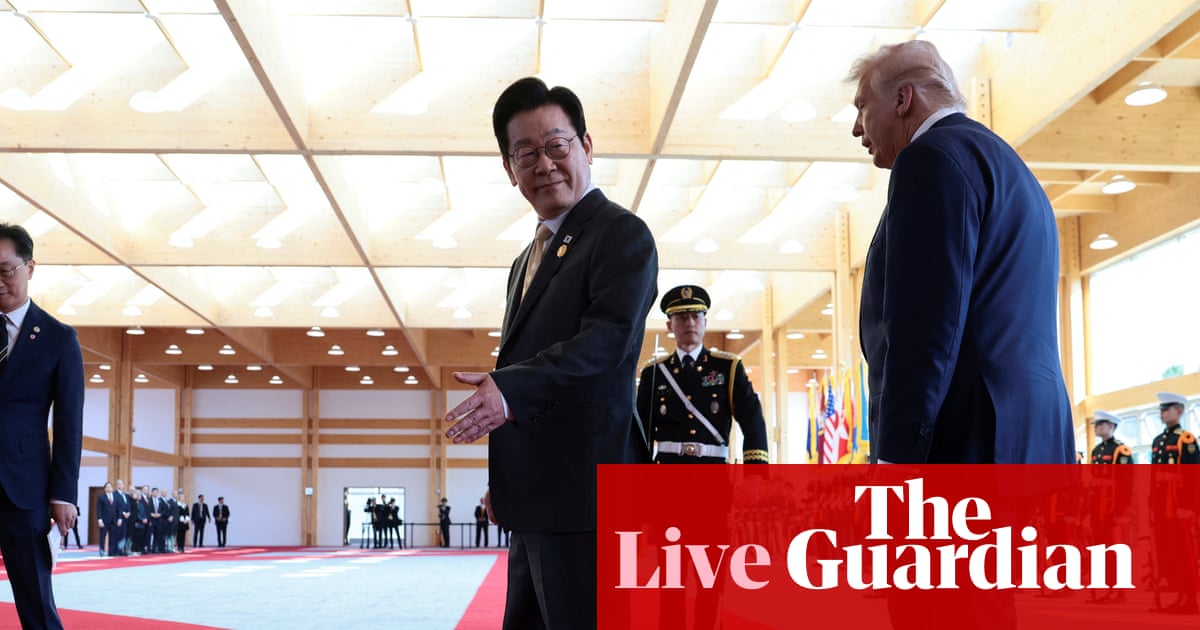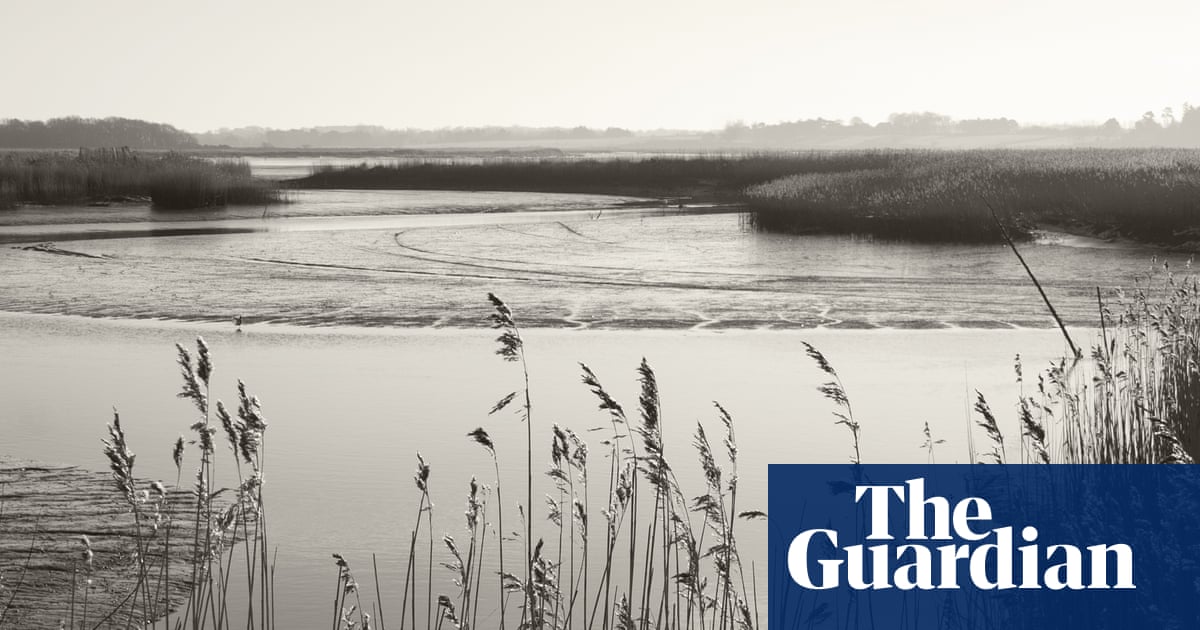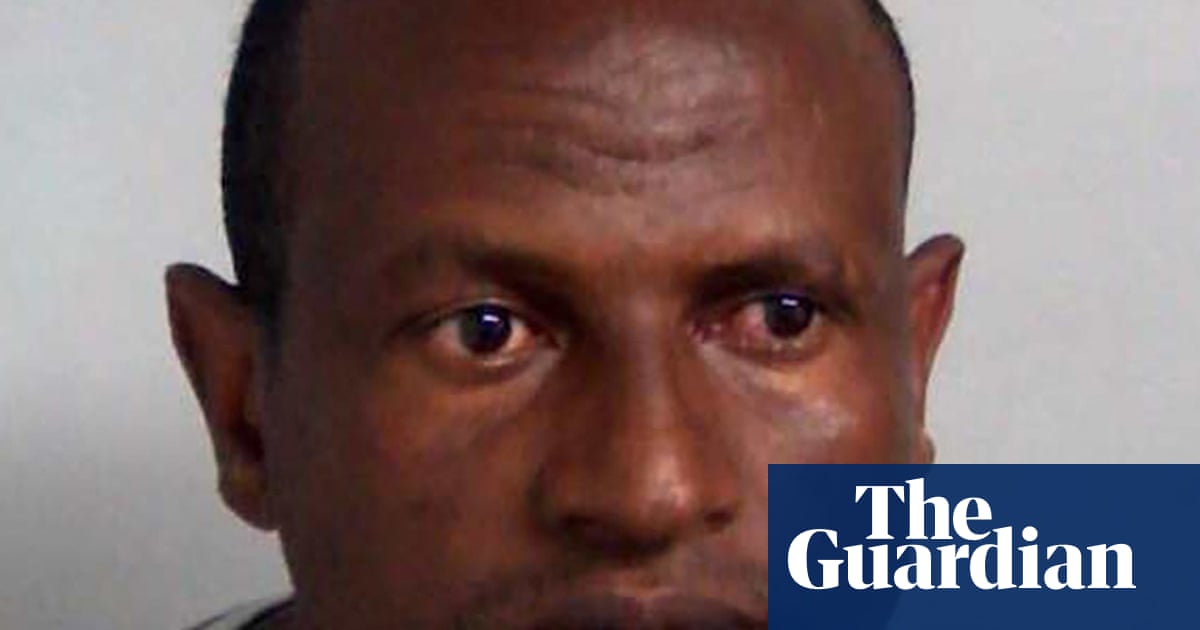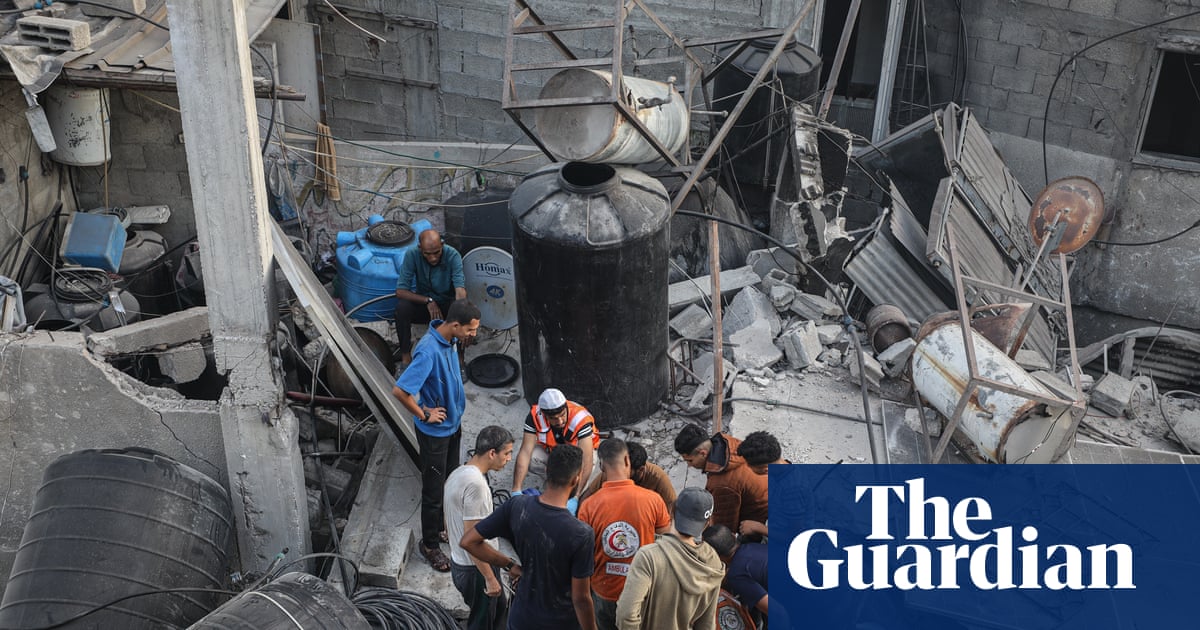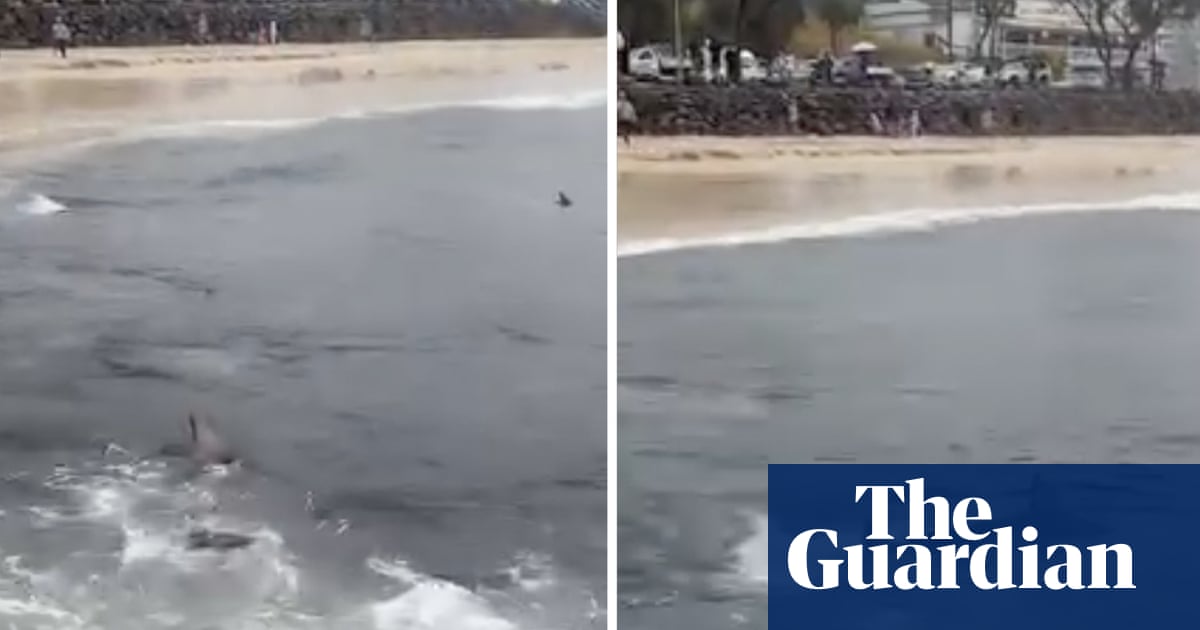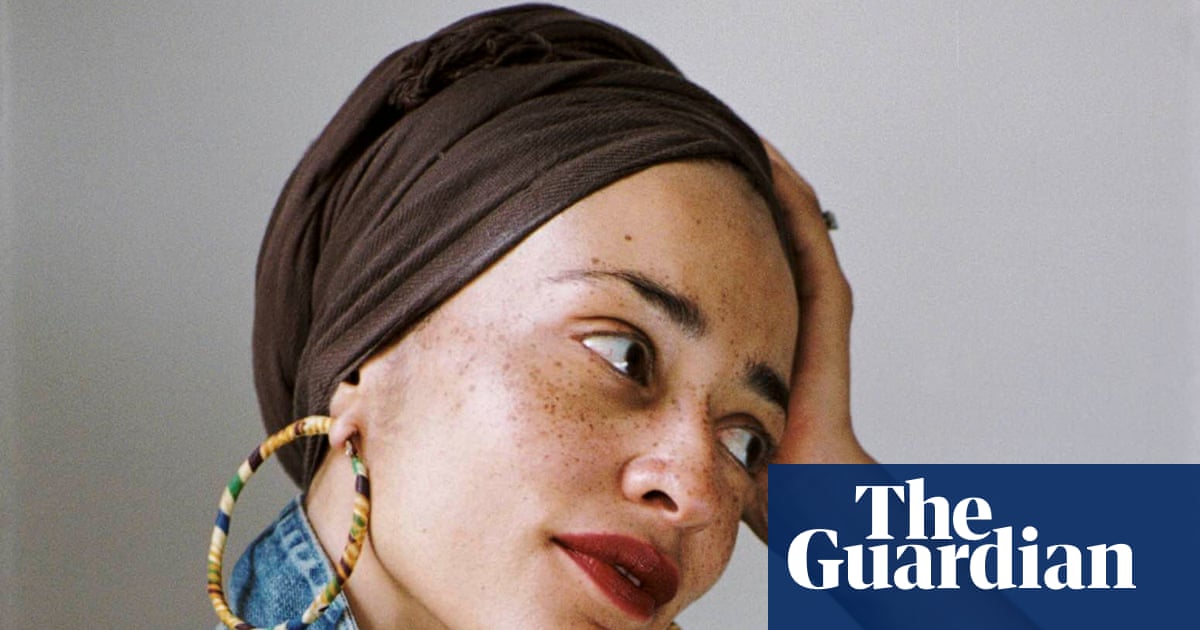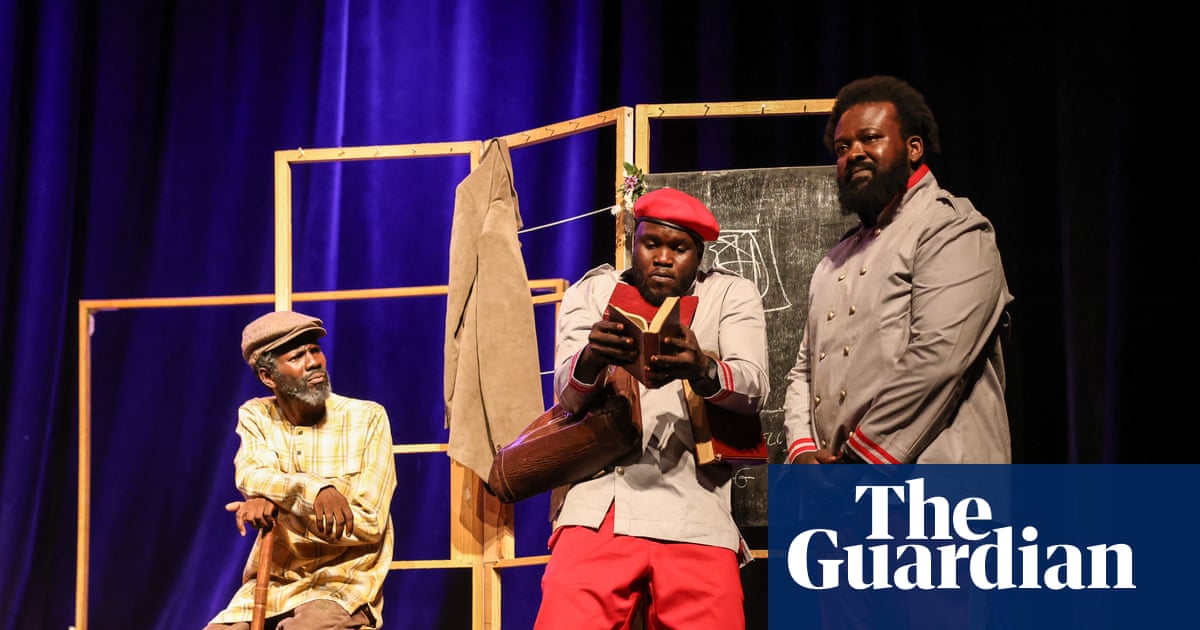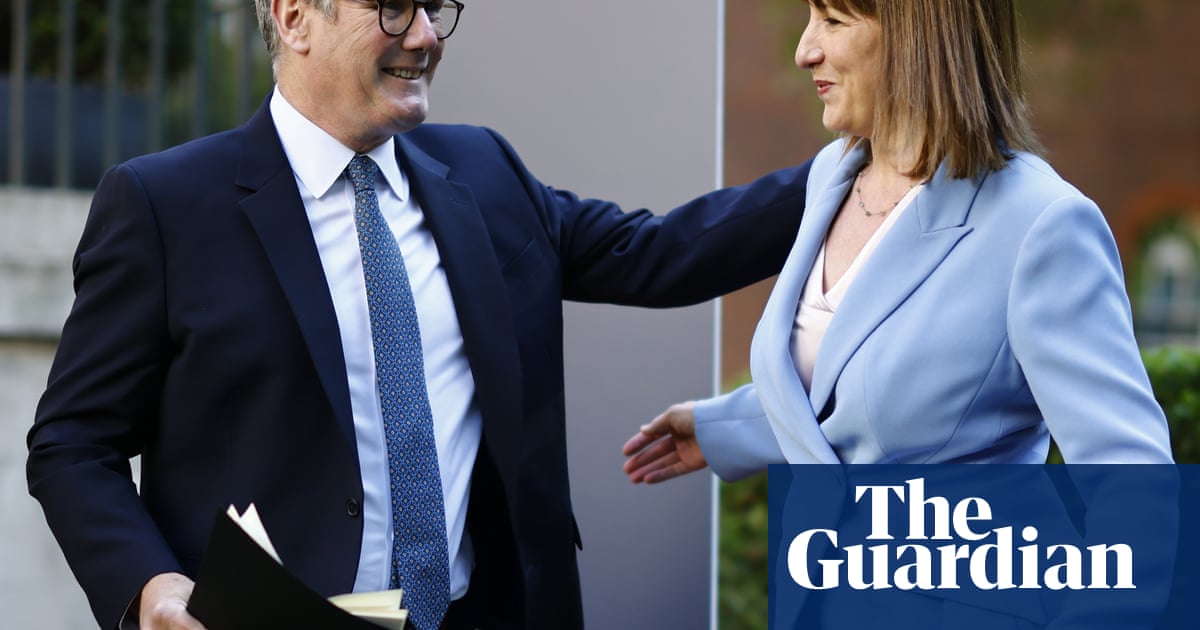Argiro Tobón, 60, rolls up his sleeves above hands covered in fresh earth. Before him lie the green pastures of Jericó, Colombia, a landscape cultivated by hands like his for generations. “Look at the beauty of this place,” says Tobón, fondly known as “Mister”.
“This is the paradise they want to destroy,” he says. “If we have to go to prison, so be it.”
Tobón, who has spent years harvesting coffee beans, is among 11 local farmers and environmental activists facing a lawsuit initiated by the South African mining company AngloGold Ashanti.
Accused of kidnapping, theft and personal injury, they were charged after a series of protests against the company’s proposed Quebradona copper mine, which activists believe poses a serious threat to the environment and agrarian economy.

The conflict between the company and regional communities has been escalating since the end of 2023. The kidnapping charge stems from an incident that year, when a group of protesters disrupted an unauthorised excavation by AngloGold, contacting the mayor’s office, police and local ombudsman, and stopping the miners working.
A similar incident in 2023 involved more than 150 farmers entering private land where AngloGold was drilling, removing machinery and handing it over to the authorities. This led to charges of theft and later of personal injury, after a miner was bitten by a farmer’s dog.
Quebradona is mainly a copper mine that also has notable gold and silver deposits. Marketed as a long-lasting, high-grade and low-cost underground operation, it aims to become Colombia’s largest copper mine, boosting the regional economy, creating a large number of jobs and enhancing infrastructure.
The company’s target is to produce about 1.4m tonnes of copper, 1.4m ounces of gold and 21.6m ounces of silver over more than 20 years.
The drilling planned for the project would extend beneath a landscape rich in biodiversity, with 232 species of birds and 59 mammal species recorded. The fertile soil forms the economic backbone of a region that is among Colombia’s top coffee-producing areas.
Yet, for many, Quebradona’s promised yield does little to offset the project’s potential effect on the ecosystem.

Miguel Ángel Cáceres, a geologist who works for Terrae, an environmental monitoring organisation tasked with an independent review of AngloGold’s impact evaluation, says: “There are very serious concerns about potential water contamination caused by the project, the generation of waste sands and the release of toxic metals.”
Cáceres raises concerns about the company’s existing environmental impact studies, claiming AngloGold’s attempts to minimise the risks of the Quebradona project are dishonest.
“They claim there are no underground water sources in Jericó, which is a lie,” he says. “They also claim there are impermeable boundaries in the area that will contain the impact of the mine to a single point, which is also untrue.”
According to Cáceres and hundreds of residents who have protested against the mine, drilling could deplete Jericó’s natural sources of groundwater, cutting off the freshwater springs that supply the region’s wildlife, agriculture and drinking water.
“We are at risk,” says Rubiel Darío Arango, 46, a farmer from the community of Palocabildo. “How will our parents and families live if the water is not protected?”
The farmers also allege that the legal charges levelled against them are “disproportionate” and “out of context” and that AngloGold intends to silence those who oppose the Quebradona project.
Ana María Gallega Patiño, one of the lawyers defending the activists, says: “This is an exercise in intimidation. They are trying to intimidate people through criminal proceedings to delegitimise the protests and discourage further action.”
Protesters presume that, with its exploration licence set to expire in December, AngloGold is growing increasingly desperate to get permission to mine with an exploitation licence from Colombia’s National Authority for Environmental Licences (ANLA). A previous application was suspended in 2021 due to a lack of data.

“If people don’t go out to protest, the company can more easily carry out their exploration,” says Gallega Patiño.
In a five-page statement, AngloGold Ashanti asserts that the Quebradona copper project in Jericó is in the exploration phase and fully compliant with Colombian law, declaring that no aquifers are present and that scientific studies indicate groundwater and surface water would not be affected. The company also says the project does not overlap with prohibited zones.
The company says that it respects peaceful demonstrations and denies engaging in illegal exploration, alleging that the protests involved acts that disrupted public order, caused property damage and interfered with its mining operations.
It also emphasises its efforts to engage the community, along with plans for a revised environmental impact study, which includes 42 piezometers to monitor groundwater and states its responsibility to protect resources and improve its operations.
Today, CCTV cameras peer down from tall trees that line the perimeter of the prospective mine. The gate bristles with signs that read “Private property” and “You are being filmed”. Protesters are facing not only a backlash from AngloGold but also opposition from within their communities.

Fernando Jaramillo, leader of the Environmental Table of Jericó, sips a black coffee in the town’s central square.
“This is a town that conserves its architecture, traditions, religion, politics and calm way of life. All of this is beginning to fracture,” says Jaramillo, an outspoken critic of AngloGold, who has seen how the company’s arrival has divided the community.
“A person who supports the company could attack any one of us. I was stabbed right here,” he says, referring to Jericó’s main square.
Tobón agrees. While tensions rarely erupt into violence, the mining project has frayed the social fabric of a once tightly knit community, he says.
“Families are divided, siblings against siblings, children against parents,” Tobón says, adding that his own family was divided, with his sister supporting the mine.
Jhon Jairo Henao, a former councillor and spokesperson for Jericoanos con Visión, a local group supporting the Quebradona project, says he and his colleagues face insults from anti-mine protesters, who call them sellouts.
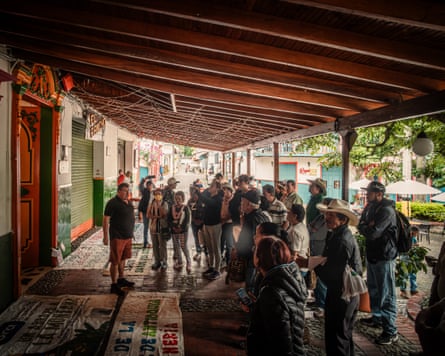
Henao sees the project as an opportunity to create jobs and attract much-needed investment.
“If this project were to become a mine, it could generate around 35bn pesos [£6.5m] annually for Jericó through royalties, not including what it would generate through taxes, which would earn over 3bn pesos annually,” he says, arguing that the majority of Jericó’s inhabitants are behind the mining project.
AngloGold has invested heavily in Jericó, funding educational and environmental initiatives that have helped shift many residents in favour of the project. Others have benefited financially from leasing their land to the company for mining exploration.
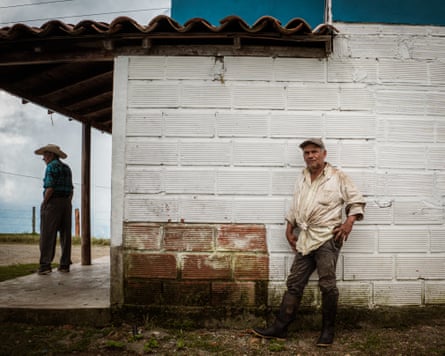
“There are some people who are in favour of the mine. More than anything, this is largely due to the power of money. Money buys consciences,” says Rodolfo Tobón, another of the 11 farmers facing prosecution.
So far, AngloGold continues its legal actions against the protesters. On 16 June, Argiro Tobón and his companions left the Jericó court to cheers and applause from a crowd after a judge ruled they would not be placed under house arrest during the trial.
Despite this initial victory, a long road lies ahead for the accused farmers. With the full extent of the legal process yet to come, their fate, and that of the land they have worked for decades, remains undecided.
“Goliath was never strong enough to defeat David,” Porfirio Garcés, another of the 11, says into a microphone the day after the hearing.
At 86 years old, he is the oldest of the accused. “I don’t think I’ll live in peace until AngloGold is gone.”

 3 months ago
69
3 months ago
69






